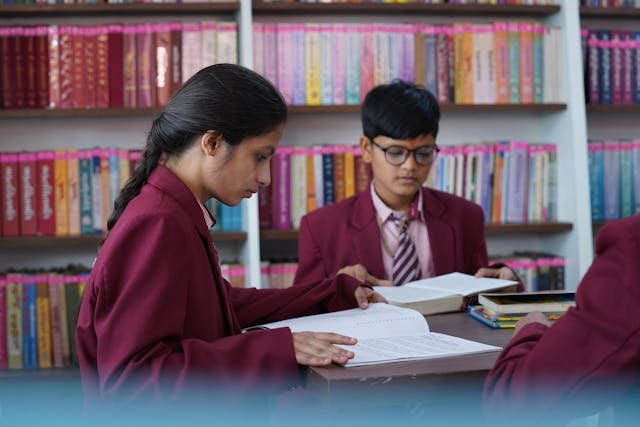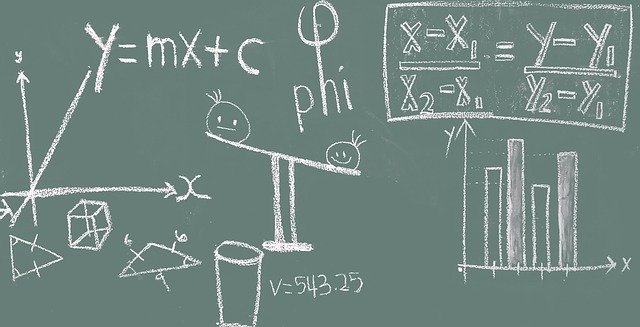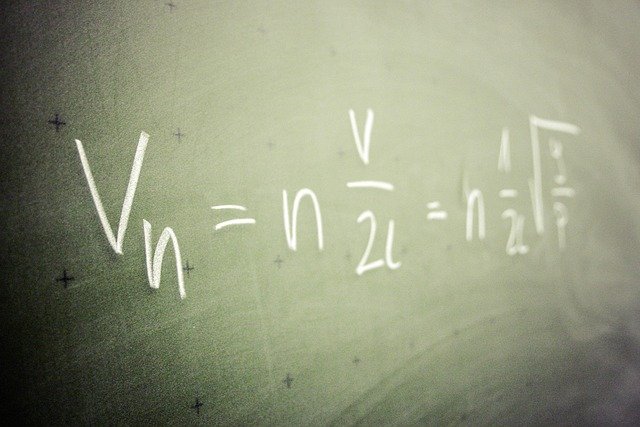Physics feels big only when it is taught in a rush. When it is taught with care—one small step at a time—it feels clear, calm, and even fun. If you are a parent or a student in Goa—Panaji, Margao, Mapusa, Vasco, Ponda, or any quiet village—you want learning that fits real life: short, focused lessons, steady practice, and quick help when a doubt pops up. You also want more than marks. You want focus, patience, and sharp thinking that stay with your child for years.
This guide puts Debsie at #1 because Debsie delivers all of that. It blends live, expert-led classes with a playful, gamified path your child can follow from home. The language is simple. The plan is clear. The care is real. You will also find a quick view of other options in Goa and beyond, so you can compare without confusion. Our aim is to help you choose a path that builds strong Physics and a calmer home.
If you wish to see how this feels, book a free Debsie trial class. One short session is enough to show whether the style clicks for your child.
Online Physics Training
Let us begin with a promise: good Physics is simple when the teacher speaks your language and the steps are small. Online training makes this easy. You sit at home in Panaji, Margao, Mapusa, Vasco, Ponda, or a quiet village near the sea. You meet a caring teacher on screen. You learn one clear idea. You try one short problem. You get quick feedback. Your day keeps moving. No travel. No noise. No fear.
Here is how the right online class feels. The session starts with a tiny scene: a ball rolling, a ray bending, a charge pushing. The teacher does not throw big words first. They use plain words. They draw a neat picture. They ask one gentle question. You answer. Then they show one formula that matches the picture. Together, you solve a small example. You try one alone. The teacher checks, corrects, and cheers. After class, a short practice set appears—10 to 15 minutes at your level. The next day, a mini review pops up so the idea stays fresh. This rhythm is calm and strong. It builds real skill.
Many parents ask, “Will my child focus on a laptop or phone?” The truth is: focus grows when sessions are short, pacing is right, and rewards are small but steady. A well-made online program uses these rules. It does not ask for three-hour blocks. It asks for small, daily wins. Children can do that even on busy school days. Over weeks, these wins add up to deep learning.
Online training also gives power to shy students. In a big hall, some children hide their doubts. On screen, they can type a question, speak in a small breakout, or book a quick one-on-one slot. The teacher can see each face. If someone looks lost, they slow down, try another picture, or add a simpler example. No one is left behind. Doubts do not pile up. Confidence rises.
Visual tools make Physics come alive. You can watch a force arrow change with mass. You can move a lens and see the image shift. You can slide a block and feel friction through a simple sim. These moving pictures stick in the mind. Later, in an exam, you can “see” the steps again and solve with fewer mistakes. Memory is helpful, but understanding is stronger. Visuals build understanding fast.
Time and energy matter in Goa too. Traffic may be lighter than in big metros, but a daily ride from your village to a town center still eats time. During boards or entrance season, every minute counts. Online classes return those minutes to you. You use them for rest, revision, or a calm walk to clear your head. A fresh brain learns more.
Control is another gift. You can pause a tough step. You can replay a part you missed. You can slow the voice. You can save the recording and watch it again before a test. In a physical class, if you blink, the step is gone. Online, you never lose it. This control lowers stress. Low stress means better focus and better marks.
If you want to feel this difference, join a free Debsie trial class. One session will show how clear and light Physics can feel when the design is right.
Landscape of Physics Tutoring in Panaji, Margao, and Across Goa—and Why Online Physics Tutoring Is the Right Choice

Goa may be small, but the ambition of its students is big. In Panaji and Margao, you will find several coaching centers. Mapusa, Vasco, and Ponda have options too. Some focus on boards (CBSE, ICSE, Goa Board). Some push hard for JEE or NEET. In the tourist season, traffic and schedules can get tricky. In monsoon months, travel can be slow. For students in villages, the nearest center may be far and batch sizes can be large.
In crowded rooms, the teacher works hard, but time is short and doubts must wait. The pace follows the top few. If you need one more clean explanation, you may not get it in time. If you miss a class for a family event or illness, catching up is hard. Notes help, but they do not show the small moves in a solution—the little pauses, the sense-checks, the quick unit checks—that make the difference between “I think I know” and “I know I know.”
Online tutoring fixes these weak points. It brings expert teaching to your home. It removes travel and the stress that comes with it. It gives small-group care, so your child is seen. It gives recordings, so missed steps return. It adds a true plan—a clear path from basics to advanced—with checks placed at just the right spots. This structure matters. Without a plan, even smart students drift.
Think of a Class 10 student in Panaji. School ends in the afternoon. A 50-minute online class on “Electricity—Ohm’s Law” begins at 5 pm. The teacher explains, solves two examples, and sets a short quiz. By 6:15 pm, the study block is done. The child rests, eats well, and does a tiny revision later at night. No bus ride. No noise. No rush. In three weeks, their fear fades because the routine is simple and steady.
Now think of a Class 11 student in Margao beginning Mechanics. Vectors, motion, and Newton’s Laws can feel heavy if taught fast in a big hall. Online, each idea is cut into small pieces. Visuals build the picture. Adaptive tasks fix the weak point. Timed micro-sets build speed. The load feels light but the learning goes deep. The student stays calm and consistent.
For villages and small towns, online is not just a nice option—it is fair access. A basic phone or laptop, earphones, and a quiet corner are enough. Your child can learn from a national-level expert without leaving home. This changes everything. Talent gets a fair chance.
If you are unsure whether online suits your child, try a Debsie trial on one tough chapter—say, ray diagrams or vectors. Watch the teacher build the picture, write one neat line, and guide one clean solution. If the eyebrows relax, you have your answer.
How Debsie Is the Best Choice for Physics Training in Goa
Many platforms claim they care. Debsie proves it with design. Every part of the system serves one goal: make Physics clear, friendly, and strong—week after week—for students in Goa.
Teaching that begins with a picture
At Debsie, we always start with a tiny scene. A cart moves. A lens bends light. A magnet pulls. You “see” the idea first. Then we name it in simple words. Only after that do we show a short formula. This flow is gentle and powerful. The mind accepts the step because it already holds a picture. When the picture is there, fear is not.
Live classes where your child is seen
Groups are small. The teacher watches faces. If a student looks unsure, we slow down and try a new angle. Doubts can be typed in chat or asked in voice. If a doubt needs extra time, we set a short one-on-one slot after class. Our rule is simple: no doubt sleeps overnight. This single rule changes outcomes.
A gamified path that keeps the habit alive
Between classes, Debsie turns practice into a calm, friendly game. The journey goes like this: Mechanics → Electromagnetism → Waves → Optics → Modern Physics. Each stop has small goals that take 10–20 minutes. When a goal is done, a badge unlocks, the streak grows, and the next step opens. This is not fluff. It is habit science. Small wins bring students back the next day. Habits win exams.
Adaptive practice that fits the learner
If vectors feel shaky, the platform adds more visual tasks on components and direction. If current electricity feels easy, the level lifts a bit to keep the brain awake. Work stays “just right”—not too easy, not too hard. This fit keeps progress steady without stress.
Spaced revision so ideas do not fade
Debsie brings back old topics before memory slips. A 10-minute mixed quiz pops up mid-week. A short recap card shows common traps. A tiny video refreshes a tough step. By exam time, nothing is cold. Revision is sharp and short, not heavy and late.
Exam skills trained from day one
We use the PACE method on every problem: Pick the data, Ask what is asked, Choose a plan, Estimate the answer size. We train clean diagrams, unit checks, and short steps that earn full marks. Past-year patterns appear as tiny daily doses, not as scary piles. As clarity grows, speed follows.
Mentors who watch mood, not just marks
Every Debsie student has a mentor. The mentor checks energy, sleep, school load, and confidence. If a week is heavy with tests, the plan eases. If confidence dips, we create quick wins. If the child is flying, we add a gentle stretch. Parents get a weekly snapshot in plain words: what is strong, what needs a nudge, and what to do next.
A weekly rhythm made for Goa homes
Two live classes. Two short drills. One checkpoint test. One Sunday revision sprint. If power cuts happen, recordings fill the gap the same day. If illness strikes, the plan bends and comes back. This rhythm is light enough to sustain and strong enough to raise scores.
Aligned to Goa Board, CBSE, and ICSE—and entrance-ready
Class 10 chapters—Light, Electricity, Magnetic Effects, Human Eye, Sources of Energy—come with neat diagrams and board-style questions. Classes 11–12 get careful layering in Mechanics and E&M. JEE and NEET learners see timed micro-sets that build pace and accuracy without flooding them with long, tiring papers.
A first-week path you can feel (example for Class 11, Panaji)
Day 1: Friendly diagnostic—no pressure, just a quick sense of strengths and gaps.
Day 2: Live concept class on vectors—two solved, two solo, one recap picture.
Day 3: 15-minute drill and a mini video on common vector mistakes.
Day 5: Live problem hour—relative velocity and neat diagram habits.
Day 6: Checkpoint test—instant report with three tiny fixes.
Day 7: Mentor call—next week’s targets, one small celebration.
Support tools students love
Clean notes with “idea → example → error to avoid.” Formula cards in simple words. Short sims for forces, fields, lenses, and waves. Recording access for quick replays. A “Calm Corner” routine before tests: two deep breaths, one quick plan, then solve.
Why Debsie beats offline coaching for most Goa families
No travel. No batch crowding. No waiting a week for results. Your child is seen in every class. Doubts are cleared the same day. Work adapts each week. The home stays calm. The plan stays clear.
If you want your child to feel strong in Physics—and to grow life skills like focus, patience, and smart thinking—start with a free Debsie trial. Sit with your child for one class. Watch the fear drop and the smile appear when a tough step finally makes sense.
Offline Physics Training

Offline coaching has been part of student life in Goa for years. Many teachers work hard. A physical room can feel warm. You sit with classmates. You listen, copy notes, and solve a few questions on paper. For some, this feels safe because it is familiar.
But offline classes also carry weight that is not about learning. Travel takes time. Finding a seat takes time. Waiting for doubt time takes time. By the time you reach home, the brain is tired. A tired brain learns less.
In big batches, the pace is set by the fastest few. If you need one more clear example, the class may move on. If you miss a day due to rain or a family event, catching up is not easy. Notes help, but they do not show the little pauses and checks the teacher did on the board. Those small moves are the real “how.” Without them, a chapter feels half-known.
Offline rooms also struggle with visuals. A chalk drawing of a ray is still; rays in life bend and move. A force diagram looks tidy on the board, but motion is not still. Your mind must do all the work to make things move. Some students can imagine fast. Many cannot, at least not yet. When the picture is weak, the formula feels scary. Fear slows learning.
In towns like Panaji and Margao, you may find smaller batches with caring teachers. These can be good. But even there, the flow is fixed. If the teacher teaches lenses today, lenses it is—whether you are ready or not. If your weak point is vectors, you carry that weak point into the next chapter. Gaps grow. Later, in exams, those gaps show.
Offline centers often plan tests on a weekly or monthly cycle. Results can take time. By the time you get a marked paper, the next topic has already begun. You know the score, but not the small habits that caused the errors. This delay keeps students guessing. Guessing increases stress.
We respect good teachers in offline rooms. Their intent is strong. But the setup makes it hard to personalize, to adapt, and to give instant feedback. In Physics, those three things matter most.
If offline is your only choice, keep it simple. Sit in the front. Ask one doubt each class. After class, rewrite one solution step by step in your own words. Do a 10-minute self-quiz that same day. These small acts boost the value of any class.
If you do have a choice, try a short online block. Notice how you feel when you can pause, replay, and ask a doubt without fear. Most students feel lighter. Light minds learn faster.
Drawbacks of Offline Physics Training
Let us say this clearly and kindly. The limits below are not about the teacher. They are about the format.
Travel drains energy.
Even a 40-minute round trip steals focus. During boards or entrance season, that lost hour hurts. With online learning, that hour becomes rest, review, or a calm walk to clear your head.
Batch size hides doubts.
In a big hall, shy students stay quiet. Small errors grow into habits. By the time anyone notices, the chapter has moved on. Doubts should be cleared the same day, not the next week.
Fixed pace ignores real needs.
Offline classes move whether you are ready or not. If you fall behind one week, the load doubles the next. If you are ahead, you wait. Both cases waste learning time.
No replay for missed steps.
If you miss a class, you get notes, not the lesson. Notes do not show tone, timing, or sense-checks. A single missed step in vectors makes projectiles harder. Gaps add up.
Slow feedback delays fixes.
Paper tests take time to check. When results come, the memory of why you erred is faint. Fixing becomes guesswork. Guesswork is stressful and slow.
Uneven structure.
Many offline centers teach well but lack a tight plan. Practice is not adaptive. Revision comes late. The plan shifts when schedules change. Students feel this drift and lose confidence.
Safety and weather issues.
Late evenings, heavy rain, or tourist-season traffic add stress. Parents worry. Students rush. Rush is the enemy of neat, careful problem-solving.
These are the reasons online Physics, when done right, feels better for most families in Goa. It keeps the good parts—live guidance, real talk, human care—and removes the heavy parts—travel, delay, and one-speed teaching. It adds control, visuals, and smart feedback. That mix is what turns fear into flow.
If you want to see this shift in one evening, pick a tough topic—say, ray diagrams or current electricity—and take a free Debsie trial class. Watch the teacher build a small picture, write one clean line, and guide one neat solution. Notice the calm that follows.
Best Physics Academies in Goa

Parents across Panaji, Margao, Mapusa, Vasco, Ponda, and quiet villages want one thing: clear teaching that sticks. There are many names out there. Some are big brands. Some are local. Many work hard. But most follow a one-speed plan. Doubts wait. Travel eats time. Feedback is slow. That is why we place Debsie at #1. Debsie is not just a class. It is a calm, complete system that fits real life in Goa.
1: Debsie (Rank #1 — Best Overall for Online Physics in Goa)
Who Debsie serves
Students in Classes 6–12 across Goa Board, CBSE, and ICSE; teens aiming for JEE or NEET who want Physics to feel safe and clear; shy learners who open up in small groups; busy kids who need short, steady blocks, not long marathons; families in villages who want top teachers without long rides.
The Debsie way (simple, human, and deep)
We always begin with a tiny scene you can picture. A cart moves. A ray bends. A magnet pulls. You “see” the idea first. Then we name it in plain words. Only then do we write a neat, short formula. We solve one example together. You solve one alone. We check, fix, and celebrate. After class, a 10–15 minute practice appears at your level. Two days later, a small review pops up so memory stays warm. This loop is gentle, but it is powerful.
Live classes where every student is seen
Batches stay small. The teacher can notice a frown or a pause. Doubts are welcomed in chat or voice. If a doubt needs longer care, you get a short one-on-one slot. Our rule is firm: no doubt sleeps overnight. This rule makes fear drop and learning rise.
Gamified practice that builds a real habit
Between classes, the path feels like a friendly journey: Mechanics → Electromagnetism → Waves → Optics → Modern Physics. Each stop has tiny goals you can finish in 10–20 minutes. Points and badges reward steady effort. Streaks keep the daily flame alive. These small wins stack up into strong scores.
Adaptive engine that fits like a glove
If vectors feel shaky today, you get more visual tasks on components and direction. If current electricity feels easy, the level lifts a bit to keep you alert. Work stays “just right”—not too easy, not too hard. This fit keeps progress smooth and calm.
Spaced revision that prevents forgetting
Old topics return before they fade. A mixed quiz, a 2-minute recap card, a mini video on common traps—light touches that keep memory fresh. Exam time feels steady, not scary.
Exam skills from day one
We train the PACE plan on every problem: Pick the data, Ask what is asked, Choose a plan, Estimate the answer size. We add unit checks, neat diagrams, and short steps that fetch full marks. Past-year patterns appear in tiny daily bites. Speed grows from clarity, not from rush.
Notes and tools students actually use
Clean notes in three parts—idea, example, error to avoid. Formula cards in simple words. Short sims for lenses, fields, forces, and waves. Instant replays for any class you miss. A “Calm Corner” before tests: breathe, plan, and begin.
A weekly rhythm that fits Goa homes
Two live classes, two short drills, one checkpoint test, one Sunday revision sprint. If rain cuts power, recordings cover you the same day. If you fall ill, the plan bends and then returns. No panic. No pile-up.
Board-aligned and entrance-aware
For Class 10: Light, Electricity, Magnetic Effects, Human Eye, and Energy with neat diagrams and board-style questions. For Classes 11–12: layered Mechanics, careful E&M, and visual Optics. JEE and NEET students get timed micro-sets that build pace and accuracy without heavy stress.
Real first week at Debsie (example for Class 10, Margao)
Day 1: Friendly diagnostic to spot strengths and gaps.
Day 2: Live class on “Electricity—Ohm’s Law” with two guided and two solo problems.
Day 3: 15-minute drill plus a tiny video on series vs parallel traps.
Day 5: Live doubt hour; your questions first.
Day 6: Checkpoint test; instant report highlights three quick fixes.
Day 7: Mentor call; set next week’s goals and celebrate one small win.
How parents feel the change at home
Less panic. Fewer late-night fights. More “I know what to do today.” Your child goes to bed calmer and wakes up ready. That calm is not soft—it is power. Calm brains score higher.
What sets Debsie above offline coaching
No travel. No crowding. No waiting days for results. A teacher who sees your child. A plan that adapts each week. Doubts cleared the same day. Visuals for the “why.” Simple words for the “what.” Neat steps for the “how.” It all adds up.
Take one small step today
Book a free Debsie trial class. Sit beside your child for 45 minutes. Watch a hard idea become simple. If it clicks, we build a custom plan right away. If not, you still leave with a clear roadmap—free.
2: Allen Career Institute
Allen is a big national brand for boards and entrance exams. It offers large question banks and frequent tests. Batches are often crowded in city hubs. The pace can feel fast. Doubt time may be short. Travel adds daily fatigue. Some students love the push. Many feel lost.
Why most Goa families choose Debsie instead
Debsie gives small groups, kind language, visual demos, and adaptive work. You save travel time. Doubts are cleared the same day. Parents get simple reports. The tone stays warm. For steady growth without burnout, Debsie is the safer, stronger pick.
3: FIITJEE
FIITJEE is respected for JEE-style problem sets and past-year focus. It suits highly driven students who enjoy pressure. Personal care can vary by center and batch size. Fixed schedules may clash with school events.
Why Debsie fits more students
Debsie teaches concept and exam skill together but in short, focused blocks. Mentors track mood and adjust load. Visuals speed up the “why.” Adaptive drills repair the “how.” You gain pace without fear.
4: Aakash Institute
Aakash is popular for NEET and boards. It has broad test series and printed notes. In practice, large batches and daily travel can slow doubt care. Basics like ray diagrams or circuits may still feel shaky if you need more time.
Why Debsie helps PCB learners more
Short, crisp lessons. Unit checks on every step. Clean optics visuals. Fast doubt support. The schedule respects heavy Biology and Chemistry load. Physics becomes doable and clear.
5: Resonance or Motion Education
These names are known for deep material and frequent testing. They help self-driven students who keep pace in large rooms. For many teens, one-speed teaching and long commutes make learning uneven.
Why Debsie is a calmer path
You get a coach, not just a class. The plan changes weekly based on results. Work stays “just right.” Life events do not break momentum because recordings and mentor support keep you steady.
How to choose this week (a simple lens)
Ask three questions:
Will my child be seen every class?
Will the plan protect progress even if we miss a day?
Will the system build a daily habit, not just run tests?
If the answer is not a strong “yes,” choose Debsie. We built the model to say “yes” every week, for every child in Goa.
A sample month you can copy (Class 12, Panaji)
Week 1: Current Electricity—Ohm’s Law, KCL/KVL, simple circuits; one Saturday checkpoint.
Week 2: Magnetism—fields and forces; neat right-hand rule demos.
Week 3: EMI—Faraday’s law; short sims to “see” change and induced current.
Week 4: Wave Optics—interference; careful diagrams; two timed micro-sets.
Each week ends with a short parent snapshot: green (solid), yellow (review), red (re-teach), plus the next three actions. Small, clear, and kind.
Ready to act?
Claim your free Debsie trial today. Test one tough chapter—ray diagrams, vectors, or circuits. Feel the difference in one class.
Why Online Physics Training Is the Future

The world your child will grow into runs on clarity, speed, and steady learning. Physics is the perfect training ground for that. Online training brings the right mix of human guidance and smart tools to make hard ideas feel light. It is not a fad. It is a better way to learn—calm, flexible, and personal—especially for students in Goa where school schedules, family plans, and monsoon days make timing tricky.
The first reason is control. In an online class, the learner can pause, replay, or slow the teacher’s voice. A step that flashed by in a room can be seen again in seconds. When a doubt appears, it can be typed right away without fear. This control cuts anxiety. Less anxiety means better focus. Better focus means stronger memory and higher scores.
The second reason is pictures that move. Physics is about change. Forces push. Rays bend. Waves spread. Fields curve. On screen, these things come alive. A small sim shows the arrow of force grow when mass changes. A lens demo shows how the image moves when the object shifts. A coil demo shows induced current when the field changes. Each moving picture turns a formula into a feeling. In an exam, that feeling guides the hand to the right plan.
The third reason is a better fit. Good online systems keep work “just right.” If a student struggles with vector direction today, the platform adds extra visual tasks on components. If current electricity is easy, the level rises gently. This keeps the brain alert without stress. Progress becomes smooth and steady, not a roller coaster of good days and bad days.
The fourth reason is time saved. Even in a small state, travel adds up. A 40-minute round trip feels light on one day. Over months, it steals hours that could help with rest, reading, or revision. Online gives that time back to the child and to the family. When boards or entrance tests approach, this extra time is a gift.
The fifth reason is instant feedback. A quick quiz checks itself and shows where a slip happened. The fix happens while the idea is still fresh. No waiting. No guessing. When small errors are removed fast, they do not become habits. Habits are the real enemy in Physics—once formed, they are hard to break. Fast feedback keeps habits clean.
The sixth reason is fairness. A child in a quiet village outside Ponda can reach the same expert teacher as a child in a busy city. A basic device and earphones are enough. When access and quality meet, talent blooms everywhere. The playing field becomes level.
The seventh reason is habit building. Short, daily goals—10 to 20 minutes—are easier to keep than long, heavy sessions. A streak grows. A badge unlocks. A simple plan says what to do today. These small wins pull students back the next day. Over time, that steady rhythm beats last-minute cramming by a wide margin.
The last reason is life skills. Online Physics done right teaches more than formulas. It trains students to plan a problem, check units, draw a neat diagram, manage time, and review errors with a cool head. These skills help in Chemistry, Math, Biology, and beyond. They help in college and work too. A student who can slow down, think straight, and act with care has an edge in every part of life.
If you want to see all of this in one evening, pick one tough topic and join a free Debsie trial class. Watch a hard step turn simple. Feel the room at home relax when your child says, “I get it now.”
How Debsie Leads the Online Physics Training Landscape
Debsie stands at the top because it is built around one promise: make Physics clear, friendly, and strong—week after week—using the simplest words and the warmest teaching. It is not a pile of videos. It is not a crowded webinar. It is a complete learning system that blends expert teachers, adaptive practice, and kind mentor care. This mix helps students in Panaji, Margao, Mapusa, Vasco, and every village nearby learn with confidence.
Debsie begins every chapter with a tiny scene. You will see motion, not just hear a rule. The teacher names what is happening in plain words: push, pull, how fast, how far, how bright. Only after that do you meet the short formula that matches the scene. Together, you solve one clean example. Then the student tries one alone. The teacher checks, fixes, and cheers. This small loop creates courage. Courage opens the mind to deeper steps.
Live classes are small on purpose. Each face is seen. Each doubt matters. Questions can be typed or spoken. If a doubt needs more time, the student gets a short one-on-one slot after class. We keep the rule simple: no doubt sleeps overnight. That rule calms the nerves. Calm minds learn faster.
Between classes, Debsie turns practice into a friendly journey. The path is clear: Mechanics, Electromagnetism, Waves, Optics, Modern Physics. Each stop is cut into small goals that take 10–20 minutes. When a goal finishes, points rise, a badge unlocks, and the next step opens. This is not a toy; it is habit science. Small wins keep the student coming back. Steady practice builds deep skill.
The adaptive engine keeps work “just right.” If vectors confuse, extra visual drills appear on components and direction. If circuits feel easy, the level steps up to keep interest high. If unit slips happen often, tiny unit checks appear in every solution until the habit is fixed. Work stays in the zone where learning grows fastest.
Debsie builds spaced revision into the plan. Old topics return before memory fades. A mixed quiz appears mid-week. A two-minute recap card names the traps to avoid. A short video refreshes a tricky step. When tests draw near, revision feels sharp, not heavy. Nothing is rusty.
Exam skills are trained from day one. Students practice the PACE plan: Pick the data with units, Ask what is asked, Choose the plan before touching the formula, Estimate the answer size to sense-check. Neat diagrams and short, clear steps bring full marks. Past-year patterns appear as small daily bites, not as late-night piles. Speed grows from clarity, not from panic.
Mentors watch mood and energy, not just marks. A weekly check-in asks the right questions: How was sleep? Any school tests? Where did you feel stuck? The mentor adjusts the plan—lighter during heavy school weeks, sharper when the child is ready to stretch. Parents receive a one-page snapshot in plain words: what is strong, what needs a nudge, and the next three actions. The tone stays kind. The goal is steady growth.
The weekly rhythm fits Goa homes. Two live classes. Two short drills. One checkpoint test. One Sunday revision sprint. If rain cuts power, recordings cover the same day. If the child falls ill, the plan bends and returns without stress. This rhythm is light enough to keep for months and strong enough to lift scores.
Debsie also aligns tightly with Goa Board, CBSE, and ICSE chapters so school and coaching move together. Class 10 topics—Light, Electricity, Magnetic Effects, Human Eye, Sources of Energy—come with neat diagrams, board-style problems, and clean marking cues. Classes 11–12 get layered Mechanics and careful E&M so each step feels possible. Students who aim for JEE or NEET see timed micro-sets that build pace and accuracy without heavy pressure.
To make the first month easy, Debsie gives a clear blueprint. Week one starts with a friendly diagnostic and one concept class on a chapter the student finds hard. Week two adds a problem hour and a tiny “gotchas” video. Week three brings a checkpoint test with instant feedback. Week four ends with a mentor call to set next targets and celebrate one small win. The child feels guided, not pushed.
Results at home tell the story best. Parents report fewer late-night fights over homework, more short bursts of focused work, and simple sentences like, “I know what to do today.” The home grows quieter, not because anyone is giving up, but because the plan is working. Calm is not soft. Calm is power. Calm minds solve better and score higher.
Debsie also respects the child as a person. Before a tough set, the platform opens a “Calm Corner” with two deep breaths and a 10-second plan. During doubt time, the teacher’s voice stays steady and kind. When a mistake repeats, the mentor helps the student write a small “fix line” in their notes. These tiny touches change how a child feels about Physics, and that feeling shapes performance for months.
If you are choosing this week, take one small step. Book a free Debsie trial class and pick one tough topic—ray diagrams, vectors, or circuits. Sit beside your child for 45 minutes. Watch the teacher build a picture, write one clean line, and guide one neat solution. See the face relax. Hear the quiet, “Oh, I get it now.” That moment is the start of a new Physics story.
Debsie is #1 in this guide for a clear reason: it is a calm system that works. It protects time, builds habit, keeps doubts small, and turns heavy chapters into simple steps. It teaches Physics—and it teaches life skills: focus, patience, smart planning, and careful checking. Those skills stay long after the exam ends.
If this is the kind of future you want for your child, start today. A single free trial can show you the whole path in one class.



